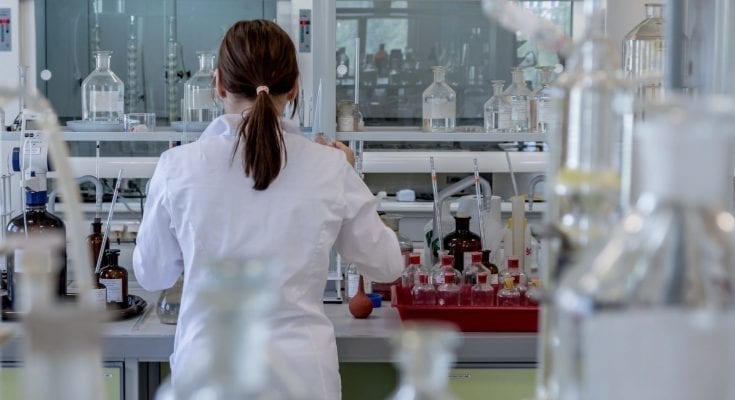The world around us is full of strange and unusual things. The closer you look, the crazier they get—so what can you expect to find when you get down to an atomic level?
These are the questions that chemistry seeks to answer. Far from being a boring high school subject, chemistry is the study of how matter interacts to make our existence possible. You never know what you’ll find when you look beyond what the naked eye can see.
Curious to learn more? Read on for six interesting facts about chemistry that will blow your mind.
1. Glass Isn’t a Solid
As you learn in middle-school science class, matter comes in three forms: gas, liquid, and solid. If someone handed you a glass cup or pointed at a window and asked you what type of matter it was, what would you answer?
A solid, of course! Except, in this case, you’d be wrong—glass is actually a liquid.
Well, sort of.
It’s an amorphous solid, meaning that even though it appears to be a stable and immovable object, its molecules are always flowing past each other very, very slowly. You can’t tell when you’re holding a cup, but it doesn’t have a definite shape or structure at the molecular level. That’s why glass shatters into irregular pieces when it breaks.
Scientists discovered this property because unlike normal solids, glass doesn’t have a distinct melting point. As you heat it, it slowly turns into a substance that appears like a semi-solid while always maintaining the chemical properties of a liquid. Like glass, rubber and some other polymers are also amorphous solids.
2. You’re 13 Billion Years Old
Scientists theorize that hydrogen was the first element that ever existed. All other elements came to be when hydrogen atoms fused with each other, forming new types of atoms that fused with each other, and so on. According to the law of conservation of mass, once the closed system of the universe formed, matter was never created or destroyed—only rearranged.
What does that mean when it comes to humans?
In essence, it means that by the time you enter the world as an infant, you’ve already existed for billions upon billions of years. The hydrogen atoms in your body are the very same ones that have been around since the birth of our universe.
3. The Metallic Germ Killer
Cultures around the world have been using copper for centuries. They’ve turned it into dishes, eating utensils, cooking pots, and even jewelry. While copper is gorgeous, that isn’t the only reason it’s such a sought-after crafting substance—it’s also antimicrobial.
Yes, you read that right. Copper is a metal that destroys germs on contact. It undergoes a chemical reaction called a redox reaction that damages and kills any microbes it’s touching.
Farmers have been using copper in agriculture for ages to keep their crops safe from bacteria and fungi. Some hospitals have even started using copper alloys like bronze for surfaces that people come in frequent contact with, like door handles and countertops, to reduce the spread of disease.
Bonus fact: copper is one of only two known metals that aren’t silvery in color—the other one is gold.
4. Chemistry Solves Crimes
Have you ever wondered how police manage to figure out what illegal drugs someone has been taking or what poison was used in a murder? In most cases, they called on the services of a forensic toxicologist for help.
Forensic toxicology is the type of chemistry that investigates toxic substances and their effect on humans. Toxicologists use a variety of highly-specialized methods to help in criminal investigations.
One technique called high-performance liquid chromatography (HPLC for short) is especially useful in solving crimes. This process separates specific molecules in a compound so forensics teams can identify unknown substances. HPLC can help them recognize the presence and amount of specific drugs or poisons in blood, fluid, or tissue samples.
If you’re still curious about how HPLC works, visit this site to find out more.
5. Underwater Plants Help Us Breathe
While the air we breathe is made up of quite a few different gases, the most important one for human survival is oxygen. That’s one of the reasons people want to protect our rainforests and stop deforestation—trees convert the carbon dioxide we exhale into the oxygen we breathe.
Rainforests produce about 28% of our oxygen, but did you know that trees aren’t the world’s largest oxygen producer?
That honor goes to phytoplankton, kelp, and algae. These ocean-dwelling plants are responsible for making a whopping 70% of the breathable oxygen in our atmosphere. Just like the plants on land, they use energy from the sun to convert C02 into 02 during the chemical process of photosynthesis.
If you want to reduce air pollution and make the world safe to breathe in again, remember to put the health of our oceans first.
6. Water Overflowing? Add Salt
If you drop a rock, an apple, or yourself into an already full container of water, the water will rise and spill out of the container. But what happens if you add that same amount of ordinary table salt? Will it still overflow?
Not necessarily.
Up to a certain saturation point, adding salt to water can cause its volume to decrease. When salt (the solute) dissolves in water (the solvent), the resulting solution’s volume will drop by up to 2%. This is because the salt re-orders the molecules into a more tightly-packed structure, meaning the same amount of water now takes up less space.
This is a great easy science experiment to try at home. Show your friends how it works and blow their minds!
Want More Interesting Facts About Chemistry?
From antimicrobial metals to liquids disguised as solids, the field of chemistry is full of mind-bending facts. If these are the things we already know about, who knows what strange and fascinating secrets we’ll uncover in the future?
Craving more interesting facts about chemistry, science, and the world in general? Make sure to visit the rest of our site to satisfy your curiosity.



